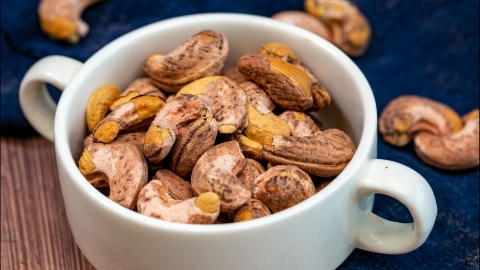Can milk and cashews be eaten together?
Generally speaking, milk and cashews can be consumed together, but moderation is important. Detailed analysis is as follows:

Milk is rich in nutrients such as protein, calcium, phosphorus, vitamin A, vitamin D, and vitamin B2, which play important roles in bone growth, dental health, and overall body development. Cashews, on the other hand, are rich in unsaturated fatty acids, protein, fiber, B-complex vitamins, and various minerals, which help lower cholesterol levels, support cardiovascular health, and provide energy.
The components of milk and cashews do not conflict with each other. Consuming them together will not produce harmful substances or interfere with the absorption and utilization of nutrients. Combining milk and cashews, for example in cashew milk drinks or cashew milk cakes, can not only enhance the taste and flavor of food but also provide a more comprehensive nutritional profile.
However, it is important to consume them in moderation to avoid gastrointestinal discomfort caused by excessive intake. Each individual's physical condition and dietary habits are different. Some people may be allergic or intolerant to milk or cashews. Therefore, it is recommended to understand your own health condition and food allergy history before consumption to ensure safety.










